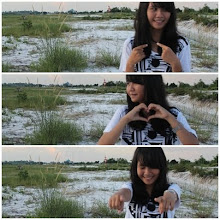Prepositions: In, On, and At (with specific times and places)
The prepositions in, on, and at can be used to indicate time and place. Notice how they are used in the following situations:
In many languages, there is only one preposition for the above situations. In English there are three. Just remember that in usually indicates the "largest" time or place, and at usually indicates the "smallest" time or place. Examples:
Prepositions with articles and locations
We use:
• at for a PRECISE TIME
• in for MONTHS, YEARS, CENTURIES and LONG PERIODS
• on for DAYS and DATES
at
PRECISE TIME
in
MONTHS, YEARS, CENTURIES and LONG PERIODE
The prepositions in, on, and at can be used to indicate time and place. Notice how they are used in the following situations:
| Preposition | Time | Place |
| In | Year, Month, In 1999, In December | Country, State, City In Japan, In Utah, InTaipei |
| On | Day, Date On Saturday, On May 1 | Street On Main Street, On 1st Ave. |
| At | Time At 8:00, At 7:30 | Address At 815 East Main Street |
In many languages, there is only one preposition for the above situations. In English there are three. Just remember that in usually indicates the "largest" time or place, and at usually indicates the "smallest" time or place. Examples:
- A: Where's your office? B: In Taipei, Taiwan. A: Really? What part of Taipei? B: It's on Chung Shan North Road. A: I know that area. Where exactly is it? B: It's at 105 Chung Shan North Road, next to the bookstore. C: When is the wedding? D: It's in June. C: What day? D: It's on Saturday, the 25th. C: What time? D: It starts at 6:00.
Prepositions with articles and locations
When talking about locations, use at to indicate the general vicinity or area, andin to
indicate inside the building, enclosed area, etc. For example:
indicate inside the building, enclosed area, etc. For example:
| at the swimming pool (on site) | in the swimming pool (in the pool itself i.e. in the water) |
| at the post office/bank (general) | in the post office/bank (inside the building) |
| at the zoo (visitors, general area) | in the zoo (animals in their cages) |
| at school | in the classroom |
- I met my wife at the theater. (while watching a movie) I spilled my drink in the theater (on the floor of the building) She works at the library on Wednesdays. She found a rare coin in the library (building). Dr. Jones works at the hospital every day. John was in the hospital for a week with a broken leg.
For school, prison, and church, the is used to indicate the building. No articleindicates
the general situation. Note the following:
the general situation. Note the following:
| "practice"/situation | building |
| in school (studying, listening to teacher, etc.) | in the school (building) |
| in jail/prison (staying there as a criminal) | in the jail/prison (temporary) |
| in church (praying, listening to a sermon, etc.) | in the church (building) |
• at for a PRECISE TIME
• in for MONTHS, YEARS, CENTURIES and LONG PERIODS
• on for DAYS and DATES
at
PRECISE TIME
- at 3 o’clock
- at 10.30am
- at noon
- at dinnertime
- at bedtime
- at sunrise
- at sunset
- at the moment
MONTHS, YEARS, CENTURIES and LONG PERIODE
- in May
- in summer
- in the summer
- in 1990
- in the 1990s
- in the next century
- in the Ice Age
- in the past/future
DAYS and DATES
- on Sunday
- on Tuesdays
- on 6 March
- on 25 Dec. 2010
- on Christmas Day
- on Independence Day
- on my birthday
- on New Year’s Eve
Look at these examples:
- I have a meeting at 9am.
- The shop closes at midnight.
- Jane went home at lunchtime.
- In England, it often snows in December.
- Do you think we will go to Jupiter in the future?
- There should be a lot of progress in the next century.
- Do you work on Mondays?
- Her birthday is on 20 November.
- Where will you be on New Year’s Day?
Notice the use of the preposition of time at in the following standard expressions:
Expression -Example
In
on
Expression -Example
- at night -The stars shine at night.
- at the weekend -I don’t usually work at the weekend.
- at Christmas/Easter -I stay with my family at Christmas.
- at the same time -We finished the test at the same time.
- at present -He’s not home at present. Try later.
- Notice the use of the prepositions of time in and on in these common expressions:
In
- in the morning
- in the mornings
- in the afternoon(s)
- in the evening(s)
- on Tuesday morning
- on Saturday mornings
- on Sunday afternoons
- on Sunday evening
When we say last, next, every, this we do not also use at, in, on.
- I went to London last June. (not in last June)
- He’s coming back next Tuesday. (not on next Tuesday)
- I go home every Easter. (not at every Easter)
- We’ll call you this evening. (not in this evening)







0 komentar:
Posting Komentar